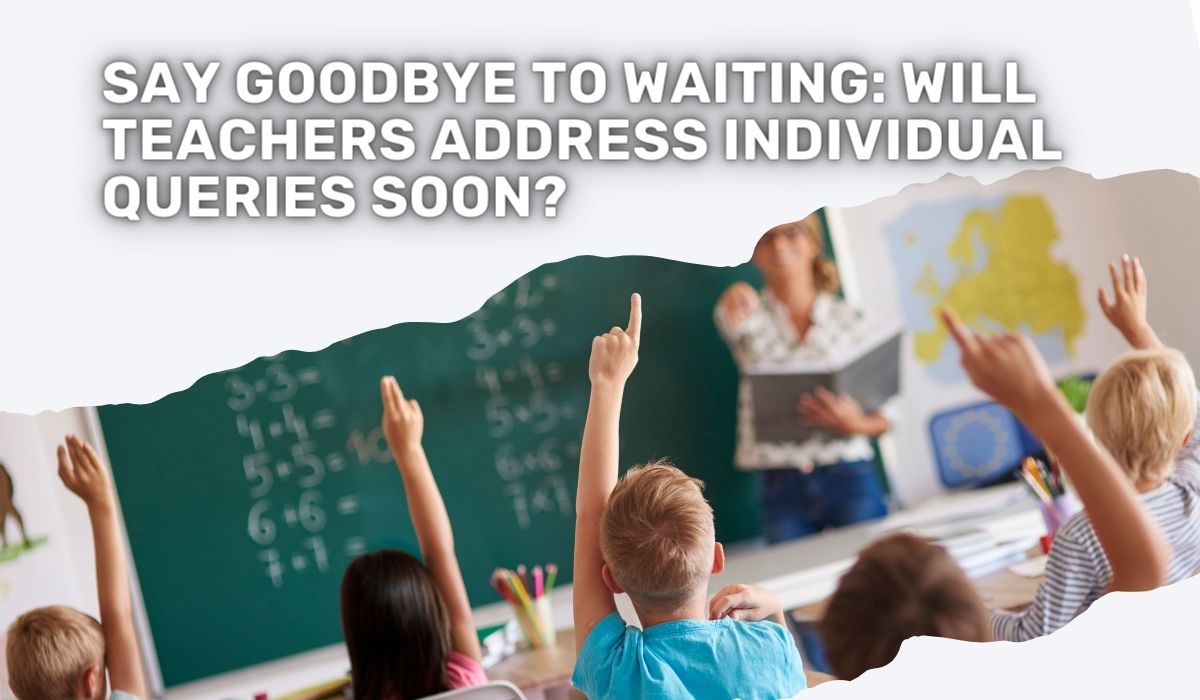
Google has once again positioned itself at the forefront of innovation with its quiet introduction of an AI product that has the potential to reshape the very foundations of our education system. The traditional image of students raising their hands in classrooms might soon become a relic of the past, as Google aims to redefine the way we approach learning. In this blog post, we will delve into the details of this groundbreaking AI product and explore the potential implications it could have on the schooling system as we know it.
The Unveiling of Google's AI Product
Google's foray into the realm of education technology is not entirely new, but the subtlety with which the tech giant introduced its latest AI product has taken many by surprise. The product, shrouded in secrecy until recently, leverages advanced artificial intelligence to create a personalized and adaptive learning experience for students. Unlike traditional classroom settings, this AI-driven system aims to cater to the individual needs and learning styles of each student, potentially rendering the conventional schooling system obsolete.
Personalized Learning: A Paradigm Shift
At the heart of Google's AI product lies the concept of personalized learning. Traditional classrooms often struggle to address the diverse needs of students, leading to varying levels of engagement and comprehension. Google's AI product, powered by machine learning algorithms, analyzes each student's learning patterns, strengths, and weaknesses. It then tailors educational content to suit the individual, ensuring a more efficient and effective learning experience.
Imagine a scenario where students no longer need to conform to a one-size-fits-all curriculum. The AI system could dynamically adjust the difficulty of lessons, pacing, and even the format of content delivery based on the student's learning preferences. This personalized approach has the potential to keep students more engaged and motivated, fostering a love for learning that extends beyond the confines of a traditional classroom.
The End of Raising Hands: Interactive Learning in the Digital Age
One of the most revolutionary aspects of Google's AI product is its interactive learning capabilities. Instead of the traditional method of raising hands to answer questions or seek clarification, students interact directly with the AI system. This real-time engagement allows for instant feedback, fostering a more dynamic and responsive learning environment.
The AI product incorporates natural language processing, enabling students to ask questions, seek explanations, and engage in discussions with the virtual learning assistant. This not only enhances the learning experience but also provides valuable insights into each student's progress and comprehension. The days of waiting for the teacher to address individual queries might soon be replaced by an instant and personalized learning support system.
Challenges and Concerns: The Human Element in Education
While the potential benefits of Google's AI product are vast, it is essential to address the challenges and concerns that come with such a transformative shift in education. One of the primary concerns is the potential loss of the human element in education. The role of teachers in guiding and mentoring students extends beyond the transmission of information – it encompasses emotional support, encouragement, and the development of critical thinking skills.
There is also the issue of access and equity. Will all students have equal access to this advanced AI-driven education, or will it further widen the existing educational disparities? Additionally, the ethical considerations surrounding data privacy and security must be carefully navigated to ensure the protection of sensitive student information.
The Future of Education: Embracing Change
As Google's AI product quietly ushers in a new era of education, it is crucial for educators, policymakers, and society at large to adapt and embrace the changes on the horizon. The integration of technology into education is inevitable, and the key lies in harnessing its power responsibly. Rather than viewing the AI product as a threat to traditional schooling, it should be seen as an opportunity to revolutionize and enhance the learning experience for future generatio
Google's introduction of an AI product with the potential to reshape the schooling system is a testament to the ever-evolving nature of education technology. The shift towards personalized and interactive learning experiences signifies a departure from the conventional classroom model. As we stand on the precipice of this educational revolution, it is essential to navigate the challenges with care, ensuring that the benefits of advanced AI technology are accessible to all and that the human element in education is not lost in the pursuit of progress. The silent revolution has begun, and the future of education holds promises of innovation, adaptability, and unparalleled opportunities for learners worldwide.